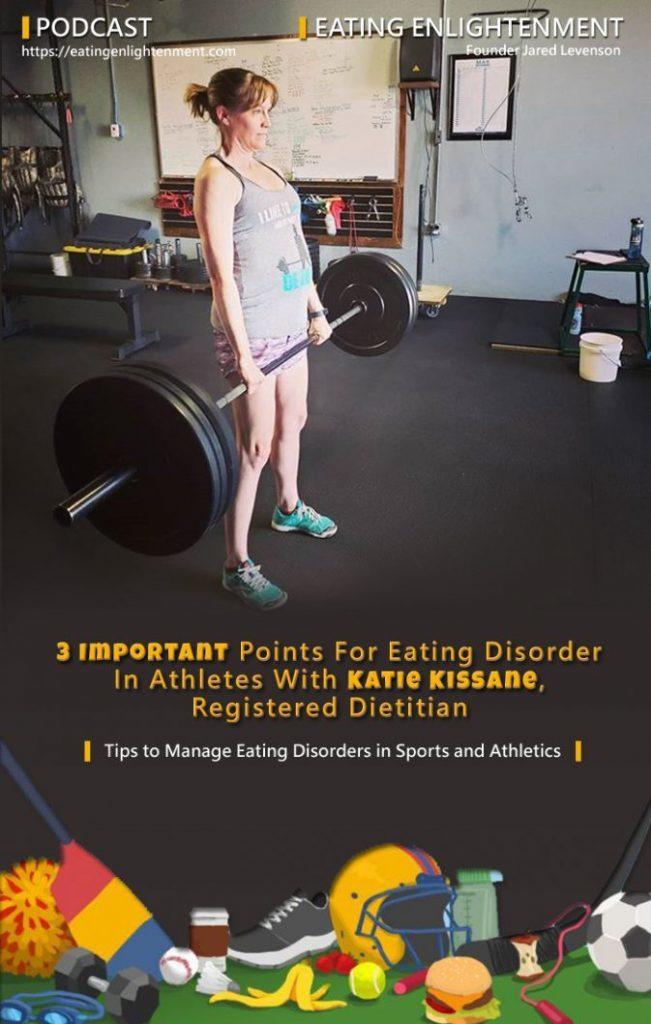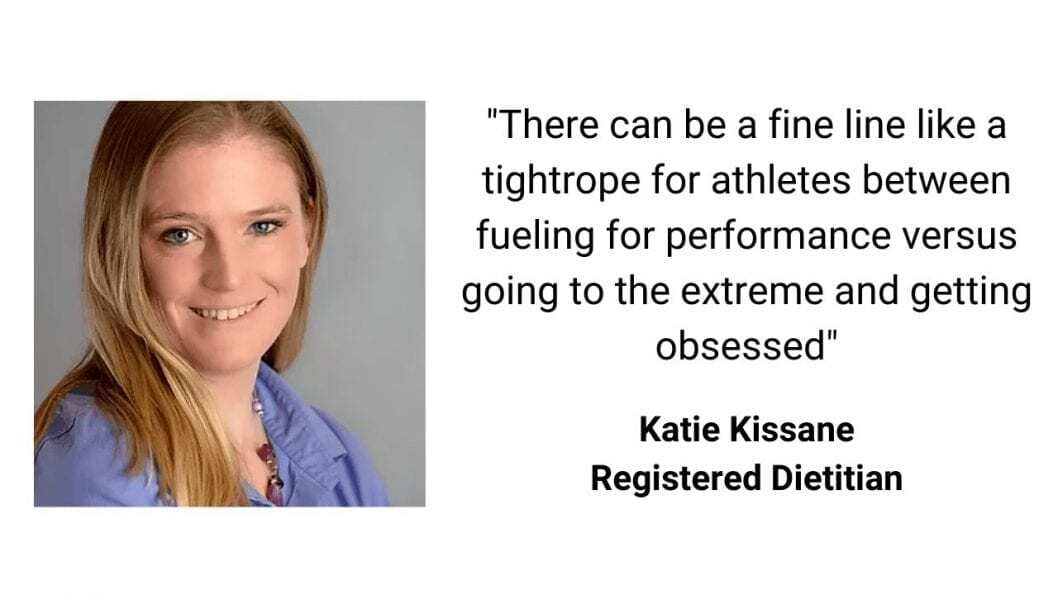
Noticing an eating disorder in an athlete can be very difficult.
As Katie mentions below, an athlete’s great discipline and focus can be like their Achilles Heel.
Their demanding discipline helps them succeed – but then becomes a primary cause for an out of control eating disorder.
To help shine light into this complex issue, this podcast highlights the professional expertise of Katie Kissane, Registered Dietitian.
This article covers written points and you can watch the video below for more info:
- Understand How Eating Disorders In Athletes Begin
- Why Athletes Develop Eating Disorders?
- Tips to Manage Eating Disorders in Sports and Athletics
Here is the full video of our conversation about Eating Disorder in Athletes
Show Notes and Information About Katie Kissane
Katie has been an athlete from the age of 12 and has continued to pursue new challenges including her first ultra marathon (50 miles) and an obstacle course race in 2017. She has run 8 marathons including the Boston Marathon in 2017.
Katie also has a diverse experience in nutrition. She worked with collegiate athletes while consulting for the athletic departments at both Colorado State University and the University of Colorado as a sports dietitian.
She has a strong clinical background as well and can assist individuals who are struggling with conditions such as irritable bowel syndrome, autoimmune disease, disordered eating, and metabolic syndrome.
You can visit Katie at her website here – https://www.nocosportsnutrition.com/
Katie’s Worst Moment While Running When She Didn’t Eat Enough Food
Here’s a quick story to help put Katie’s expertise in context…
In 2011 Katie was in graduate school and running.
Between school, work and running Katie wasn’t eating enough. She was just busy. She wasn’t restricting.
Katie was hoping to qualify for Olympic trials – but ended up running too many miles without enough recovery.
Most runners think you just need to run a lot everyday, but you need recovery.
The over training, the under fueling – it collided one workout.
During an 800 meter repeat, after the workout Katie could barely run. She had to walk. She knew something was wrong.
During the race for the Olympic trials Katie had to walk instead of run!
Understand How Eating Disorders In Athletes Begin
- Athletes come to Katie because they aren’t performing at their best
- Katie sees athletes with eating disorders at all levels of performance from beginner, amateur and professional
- Katie watches for signs of eating disorders in athletes where the athlete is doing “a little too much“:
- counting calories too much
- not eating enough
- restricting
- fearful of certain foods
- Athletes oftentimes won’t be eating enough to properly maintain their body
- Eating more food can seem counter-intuitive to athletes, and not eating enough food combined with a rigid, perfectionist mindset is how eating disorders in athletes begin
Why Athletes Develop Eating Disorders
- Athletes think discipline will increase performance but discipline can become too rigid
- Self-analysis, measurement can be double-edged sword. It’s one thing to reflect on a loss or how to improve, but problems can arise when you obsess about every little detail
- There can be a fine line between performance versus eating disorder
Understanding and Managing Eating Habits
- Athletes are more motivated to change their eating habits than the average person
- Low hanging fruit eating habits to focus on “before, during and after”
- breakfast – eat a nutritious breakfast!
- before a workout, during a workout, and right after a workout
- These eating habits are low hanging in the sense that by making small adjustments to these eating habits, an athlete can notice improvements in performance and feel better. After making these small improvements, the athletes come to trust Katie more and she can potentially begin bringing up the topic of eating disorders
For another post of mine about eating disorders, read “What To Do If You Have An Eating Disorder? Four Women Share Their Most Powerful Eating Enlightenment Lesson“




This post is very easy to read and understand without leaving any details out. Great work! Thanks for sharing this valuable and helpful article.
Thanks Gregory, it’s vital that people get solutions to eating disorders from a variety of sources, and look up treatment options to find ways that work for each individual, and their family